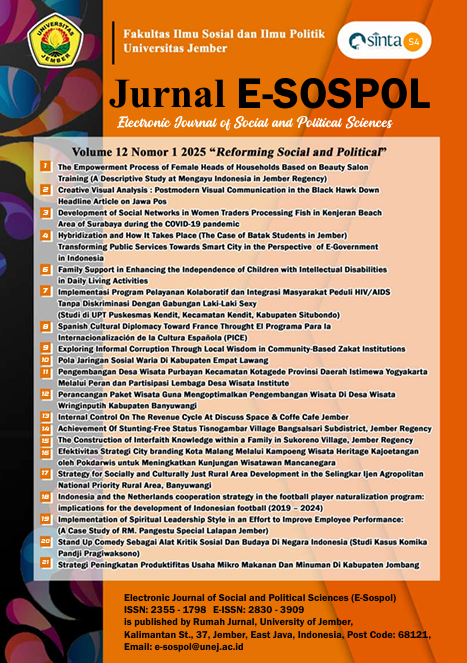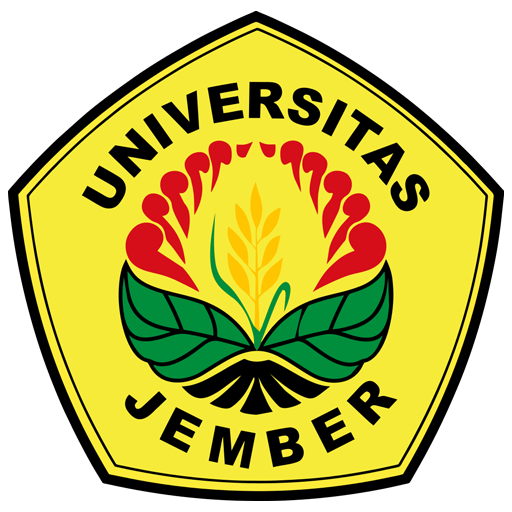Family Support in Enhancing the Independence of Children with Intellectual Disabilities in Daily Living Activities
DOI:
https://doi.org/10.19184/e-sospol.v12i1.53703Abstract
This study aims to determine the role of family support in increasing the independence of children with disabilities in carrying out daily activities. This study uses qualitative methods as a research approach with research subjects, namely four families who have children with disabilities, so the technique of selecting informants uses purposive sampling. Data were collected through non-participant observation, in-depth interviews, and documentation studies. Data analysis techniques used data reduction, data collection and conclusion drawing. The results showed that family support is crucial in increasing the independence of children with disabilities. The family is the first person to be present and accept the child's condition as a whole. The forms of support include informational support by providing advice and information to children so that they can carry out various activities on their own but are still accompanied; recognition support, which gives appreciation to children when children successfully complete a basic job well; instrumental support, which provides complete facilities such as therapy and skills training; emotional support, which is concerned with concern, sympathy and empathy, acceptance, and affection from the family to children. These forms of support contribute to improving children's ability to carry out daily activities independently. In addition, the importance of synergy between family and social environment in shaping children's independence in a sustainable manner.
Downloads
Downloads
Published
Issue
Section
License
Penulis yang mengusulkan naskahnya untuk dapat diproses penerbitannya pada e-SOSPOL dianggap telah menyetujui beberapa hal sebagai berikut:
1. Penulis tidak dapat menarik naskah yang telah usulkan untuk diproses hingga mendapat jawaban dari Ketua Dewan Penyunting atas status naskah artikel ilmiahnya (diterima atau ditolak untuk diterbitkan).
2. Penerbit tidak bertanggung jawab terhadap kasus plagiasi atas artikel yang terbit pada e-SOSPOL
3. Penerbit tidak bertanggung jawab atas data dan isi dari artikel yang diterbitkan pada e-SOSPOL, dan sepenuhnya merupakan tanggung jawab penulis.







